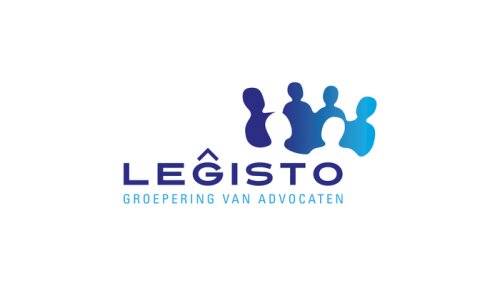Best Mining Law Lawyers in Mol
Share your needs with us, get contacted by law firms.
Free. Takes 2 min.
List of the best lawyers in Mol, Belgium
About Mining Law in Mol, Belgium
Mining Law in Mol, Belgium is a specialized area of law that governs the exploration, extraction, and processing of minerals and other geological materials. Given Mol’s unique position within the province of Antwerp and its rich history of sand and gravel extraction, as well as the presence of research institutions focused on nuclear energy and mineral processing, the legal landscape here can be complex. Mining Law in this region is shaped by Belgian federal statutes, Flemish regional regulations, and municipal policies to regulate the sustainable and safe development of mineral resources.
Why You May Need a Lawyer
There are several situations where individuals or companies may require legal assistance in the field of Mining Law in Mol:
- Securing mining or quarrying permits and navigating the extensive application process
- Understanding land ownership and usage rights when minerals are discovered
- Negotiating contracts with landowners, mining companies, or governmental authorities
- Resolving disputes related to mining boundaries or royalty payments
- Ensuring compliance with environmental rules governing mineral extraction
- Addressing liability for environmental damage, reclamation obligations, or pollution
- Challenging permit refusals or addressing enforcement actions by local regulators
- Interpreting health and safety requirements for mine operators and workers
- Advising on cross-border mining activities or EU regulations that impact mining operations in Mol
A lawyer with expertise in Mining Law can help protect your rights, provide strategic guidance, and ensure compliance with complex regulations.
Local Laws Overview
Mining activities in Mol are subject to several layers of regulation. Key aspects include:
- The federal Belgian Mining Code, which defines overall mining rights and responsibilities
- The Flemish Environmental and Planning Legislation (VLAREM), which includes stringent permitting procedures and environmental standards for exploration and extraction
- Municipal bylaws specific to Mol, which may impose additional restrictions or requirements relating to land use, truck transport, or public safety
- Nuclear-related mining or research sites are subject to special permits and oversight by the Federal Agency for Nuclear Control (FANC)
- Environmental impact assessments are typically required before permits can be granted, especially for industrial-scale extraction
- Mineral rights are often separate from land ownership, meaning landowners may not automatically own subsurface minerals
- Stakeholder consultation, including local communities and environmental groups, is generally required as part of the permitting process
- Obligations to rehabilitate and restore mining sites after extraction is completed
The legal landscape is designed to balance economic development with environmental sustainability and public health.
Frequently Asked Questions
What permits do I need to start a mining operation in Mol?
You will need to obtain several permits, including an environmental permit from the Flemish government and possibly additional permits from the municipality of Mol. The type of minerals, the depth of mining, and the location all affect the permitting process.
Who owns the minerals beneath my property?
In Belgium, mineral rights are often separate from land ownership. The state usually retains ownership of underground minerals, but exceptions exist. A legal review is often necessary to determine exact rights for a specific property.
What environmental regulations apply to mining in Mol?
Mining operations must comply with the VLAREM environmental code, which covers pollution, waste management, noise, water protection, and site restoration. Environmental impact assessments are mandatory for most projects.
Can mining activities be challenged by local residents?
Yes, local residents and organizations have the right to comment on permit applications and may challenge decisions through administrative and judicial review processes.
What is the role of the municipality of Mol in mining regulation?
The municipality enforces local zoning, noise regulations, and certain environmental protections, and may provide input or objections during the permitting process administered by regional authorities.
What happens if environmental damage occurs due to mining?
Operators are legally responsible for remediation and may face fines, permit suspension, or civil liability for environmental damage. Strict site restoration obligations usually apply after mining ends.
Are there special rules for uranium or radioactive mineral extraction?
Yes, extraction and research involving uranium or radioactive materials are subject to additional oversight by the Federal Agency for Nuclear Control and stricter permitting standards due to safety concerns.
Can I transfer or sell my mining rights?
Mining rights can often be transferred or assigned, but this usually requires regulatory approval and may trigger additional permitting or notification requirements.
Do mining companies have to pay royalties or taxes?
Yes, mining operators generally pay royalties to the government and are subject to corporate and environmental taxes. The rates and structure depend on the type of resource and agreement in place.
What legal recourse do I have if my property is affected by nearby mining?
If your property is impacted by subsidence, pollution, or other mining-related harm, you may have grounds for compensation or injunctive relief through civil or administrative legal proceedings.
Additional Resources
The following organizations and institutions can assist individuals seeking more information or legal advice about Mining Law in Mol:
- Flemish Department of Environment - Oversees environmental permits and mining regulations
- Municipality of Mol - Provides local regulations and public consultation opportunities
- Federal Public Service Economy - Administers national mineral resource policies
- Belgian Geological Survey - Offers access to geological maps and mineral data
- Federal Agency for Nuclear Control (FANC) - For issues involving radioactive minerals
- Local bar associations - Can help you find lawyers specialized in Mining Law in the Antwerp province
- Environmental advocacy organizations active in the Campine region
Next Steps
If you require legal help concerning Mining Law in Mol, consider the following steps:
- Identify your specific concern, such as permitting, land rights, or environmental compliance
- Collect any relevant documents, such as property deeds, existing permits, and correspondence with authorities
- Contact a qualified lawyer with experience in Belgian Mining Law and familiarity with local rules in Mol
- Arrange a consultation to discuss your case, potential risks, and available legal strategies
- Follow up with governmental departments for official guidance or to access public records related to your matter
- Stay informed about public hearings or community consultations related to mining projects in your area
A proactive approach with experienced legal representation will help ensure your interests and rights are fully protected in any mining-related matter.
Lawzana helps you find the best lawyers and law firms in Mol through a curated and pre-screened list of qualified legal professionals. Our platform offers rankings and detailed profiles of attorneys and law firms, allowing you to compare based on practice areas, including Mining Law, experience, and client feedback.
Each profile includes a description of the firm's areas of practice, client reviews, team members and partners, year of establishment, spoken languages, office locations, contact information, social media presence, and any published articles or resources. Most firms on our platform speak English and are experienced in both local and international legal matters.
Get a quote from top-rated law firms in Mol, Belgium — quickly, securely, and without unnecessary hassle.
Disclaimer:
The information provided on this page is for general informational purposes only and does not constitute legal advice. While we strive to ensure the accuracy and relevance of the content, legal information may change over time, and interpretations of the law can vary. You should always consult with a qualified legal professional for advice specific to your situation.
We disclaim all liability for actions taken or not taken based on the content of this page. If you believe any information is incorrect or outdated, please contact us, and we will review and update it where appropriate.









